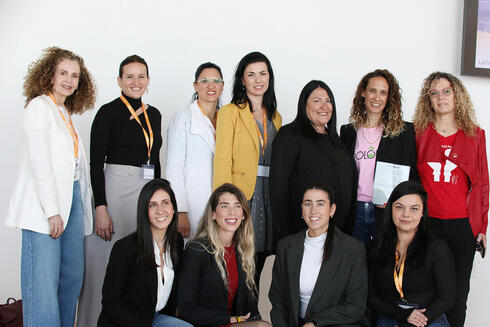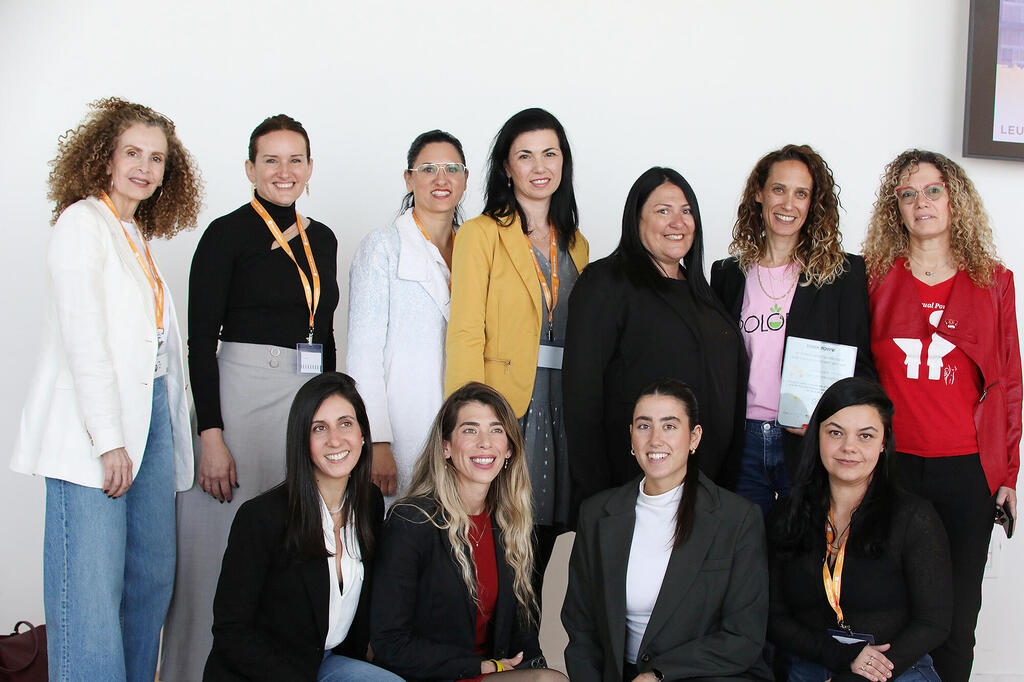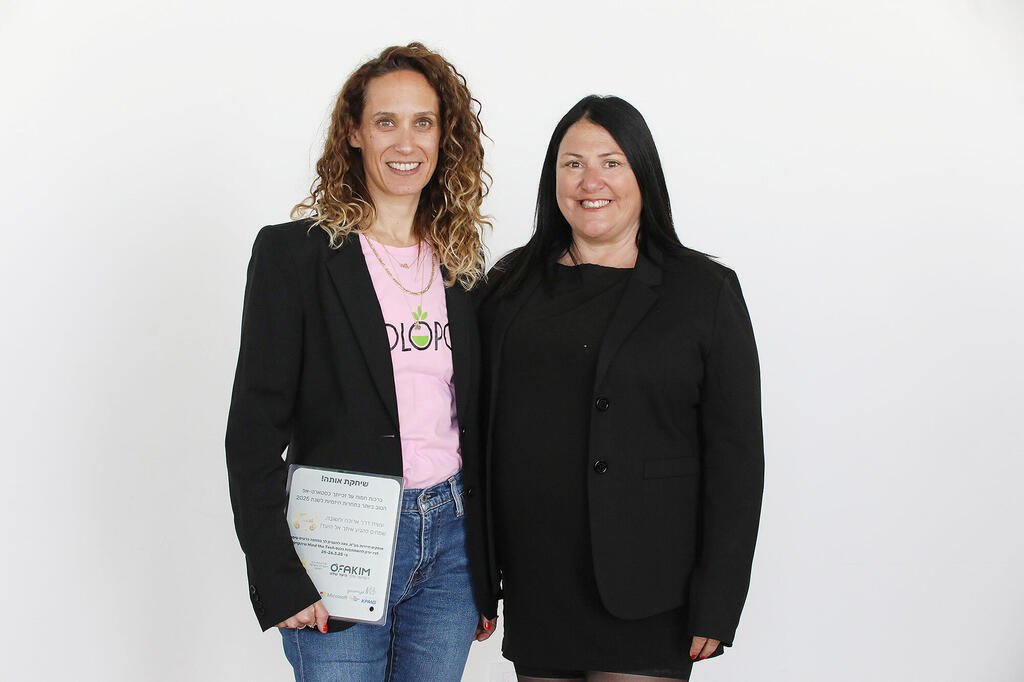
"When women lead, the world progresses and becomes a better place"
PoLoPo, a company developing technology to grow animal-based protein in potatoes, won first place in the Next Gen Impact competition for women entrepreneurs hosted by Yazamiyot in collaboration with Microsoft, Luzzatto group, KPMG, Ofakim Travel, and Calcalist. Only 30% of the high-tech workforce is female, and the numbers are even lower in entrepreneurship.
"When women are given the opportunity to lead, the world progresses and becomes better. Promoting female entrepreneurship is not just a step toward closing gaps," said Hilla Ovil-Brenner, leader of the organization for female entrepreneurship, Yazamiyot.
"Yazamiyot started in my backyard 14 years ago, and since then, we've run 30 programs worldwide, worked with dozens of partners, and held many courses," she said in her remarks at the Next Gen Impact competition finals. The annual competition, dedicated to supporting women leading impact-driven startups, was organized by volunteer Sharon Zarfati from Yazamiyot.
"This event is much more than a competition - it is a platform for women who are redefining success, changing the rules, and using technology as a force for change. Thank you to the women of Yazamiyot who make this magic happen, as well as to LeumiTech, the Luzzatto Group, Ofakim Travel, and all the other partners who will fly the winner to New York to present at Calcalist’s annual conference," she added.
"We are in a challenging period - slightly better than last time," said Noa Tamir, CEO of Calcalist. "We are at the beginning of a national recovery process, and a crucial part of building a better society and country is having more women in positions of influence. People often say there aren't enough women in leadership, but just look around; there are so many female CEOs here, whether in startups, investment funds, or major companies."
Tamir highlighted the significance of mutual support and persistence. "First, we need to support each other - whether by extending a hand to a young female entrepreneur or by bringing more women into our leadership teams. This is how we put more talented women in the spotlight. The second message is to keep pushing forward, be bold, and take center stage. We must put ourselves in the spotlight."
According to Yael Arnon Livneh, Head of Marketing and Business Development at LeumiTech, 30% of the high-tech workforce is female, but the number of female entrepreneurship is far lower, which is why the event is so important. "You have the power to change the future of your sister, your neighbor’s daughter, and the little girl at the playground - to inspire someone who will look at you and say, 'That’s what I want to be.'"
"It is well known that when a job requires ten qualifications, women will only apply if they meet all ten, whereas men will apply if they meet six or seven, or even fewer," said Dina Pasca-Raz, a partner at KPMG Israel. “We need to find ways to overcome this bias and make entrepreneurship more accessible to women."
According to Revital Ben-Natan, CEO of Ofakim Travel, female entrepreneurs possess unique advantages: "Women have a distinctive combination of strong intuition, an ability to understand people's needs, and mental flexibility. They know how to ask the right questions, find creative solutions, and see the full picture. Beyond developing products or services, they are also driven by a desire to make an impact."
Hila Goldman Aslan, CEO and Co-founder of DiA Imaging Analysis, spoke about leading her company for ten years from concept to proof of feasibility, product development, team building, regulatory approvals, fundraising, partnerships with leading suppliers and medical centers, and ultimately, selling the company.
"There’s a difference between today and ten years ago, but even when I entered the field, I didn’t consciously see obstacles as a woman compared to a man. It's possible that someone told me 'no' because I was a woman, but people tend to invest in those who resemble themselves. I noticed a significant change when we were fundraising - I would ask investors how many of their portfolio companies were led by women. Today, funds feel uncomfortable if they don’t invest in female-led startups or if they lack female partners. I have a daughter and two sons, and I hope things continue to improve," she said.
Growing animal protein inside a potato
At the heart of the event was a competition featuring six female-led startups, selected from hundreds of applicants. First place went to PoLoPo, which has developed a method to grow animal-based protein in potatoes. "The food industry is looking for alternatives to eggs as a protein source. By genetically engineering crop seeds to produce proteins, we insert the DNA of eggs and grow it in a field like a regular potato. The result is a functional protein powder that the food industry can easily use," explained Maya Sapir-Mir, CEO and Co-founder of PoLoPo.
In response to a question from a judge, Sapir-Mir said that the cost of protein extracted from potatoes would be comparable to that of egg-derived protein. "Today, there’s a massive crisis with egg prices. However, compared to alternative proteins, using potatoes allows us to achieve a cost similar to that of eggs," she added.
Second place was awarded to Re-Fresh Global, represented by CEO and Co-founder Victoria Kanar, who, along with her partner, started collecting fashion waste and developed a technology capable of separating different materials in textiles. "When we started, we didn’t realize that most textiles we use are a blend of polyester and cotton - this is a $400 million problem. We have three patents in the process of registration, using enzymes to separate the materials in textiles," she said. In response to judges' questions, Kanar noted that their clients include both those looking for textile waste solutions and those seeking to incorporate more recycled materials into their products.
Third place went to Symbiosis, led by Dr. Shira Burg, a veterinarian who developed a device for replacing heart valves. "This issue exists in humans as well, and the challenge is tailoring the shape of the valve to each patient. That’s why we developed a device that can be adapted to each individual," she explained. When asked about production costs, Borg stated that their valve would cost $3,000 to produce, compared to the $30,000 price of existing market solutions.















